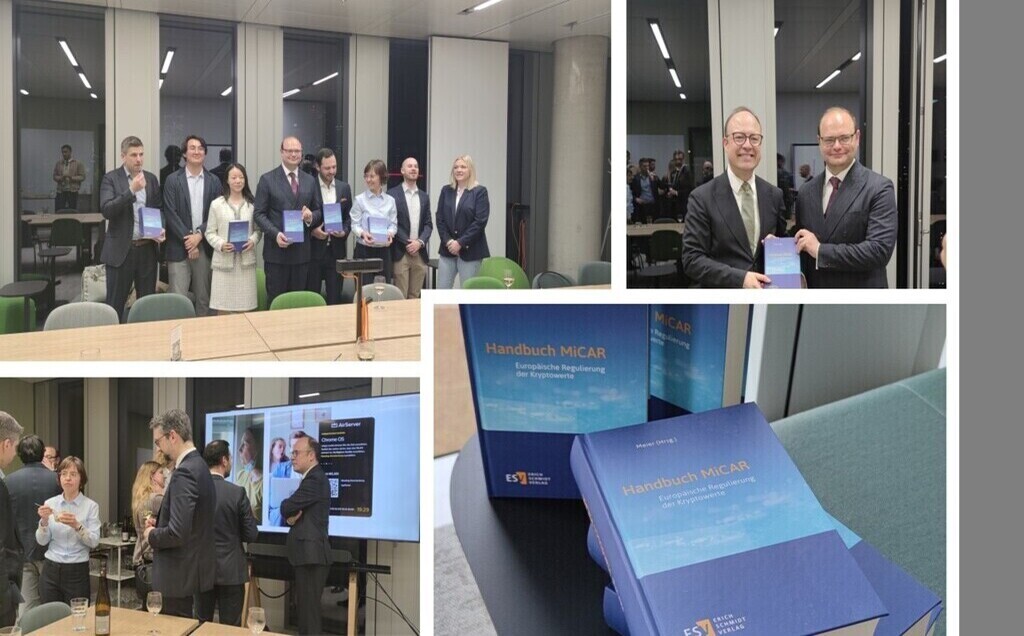Security tokens are blockchain tokens that are issued via smart contracts and that grant to their owner certain monetary rights like e.g. an interest rate or a participation right on the issuing companies’ profit. In this respect the security token differs from the utility token which grants its holder access to or benefits within the issuers’ business model and the currency token which in general is just an alternative means of payment and grants to the token holder no rights vis-à-vis the issuer at all. Within the German jurisdiction and therefore in all cases where German investors are targeted by the token issuing company as potential investors, BaFin will generally qualify the security token as a security if the token is tradable without restrictions and therefore is fungible and fits for capital markets. To those tokens the German Securities Prospectus Act and the EU Prospectus Directive are applicable. The public offering of these tokens in Germany can therefore only take place if the emitter has a securities prospectus created, approved by BaFin and published prior to the public offering.
LEGAL EXEMPTIONS FOR BIG TICKETS AND SMALL OFFERINGS
The obligation to publish a securities prospectus is generally in effect when offering a security token but there are exemptions. The German Securities Prospectus Act provides a couple of legal exemptions that lift the obligation to create a prospectus in certain cases from the emitter of security tokens. A security token offering that exclusively targets qualified and professional or institutional investors is subject to such an exemption. Likewise, emitters offering their security token either to not more than 150 non-qualified private investors within the European Economic Area or only allow minimum investments of 100.000 euros from each individual investor also do not need to create a prospectus for their security tokens. Banks and Emitters whose shares are already publicly traded are also exempted.
PRIVATE PLACEMENT OF SECURITY TOKEN WITHOUT A SECURITY PROSPECTUS
The obligation for emitters of securities respectively security tokens to create and publish an approved prospectus only applies when publicly offering the security or the security token. In case of offering those products exclusively to family and friends or to investors to whom a business relation had already been established before the offering, the creation and approval of a prospectus is unnecessary. When it comes to security token offerings this method may primarily be useful in the context of a presale to the actual token offering because through a private offering no new investors can be acquired. On the other hand, this possibility can be useful to finance and market the STO main sale if the issuer has a financially strong network that is willing to invest in his project
STO WITH A VOLUME OF UP TO 8 MILLION EURO WITH AN INFORMATION SHEET INSTEAD OF A PROSPECTUS
Another interesting exemption from the obligation to create a prospectus for a security token offering can be employed by emitters of STOs with a hard cap of 8 million Euro. For these types of STOs the emitter does not have to draft a full securities prospectus but rather an information sheet that includes information regarding the emitter, the security token to be offered and the risks associated with the investment. If the issuer wants to procure capital of in between one and up to 8 million euros, the token sale has to be performed by a BaFin licensed investment intermediary or a BaFin licensed investment advisor. The BaFin licensed sales company has to ensure that private investors with an average wealth profile do not invest more than 1,000 euros and that wealthy private investors do not invest more than 10.000 euros maximum if their financial situation allows it. The review of the financial situation of the individual investor and the determination of the maximum sum that he can invest is the responsibility of the BaFin licensed sales company. If the hard cap of the STO is less than one million euros, the STO can be conducted without a BaFin licensed distribution partner. This funding method can be a viable alternative to the classical sale of company shares for startups in the early business stages.
Attorney Lutz Auffenberg, LL.M. (London)
I. https://fin-law.de
E. info@fin-law.de
subscribe to Newsletter






